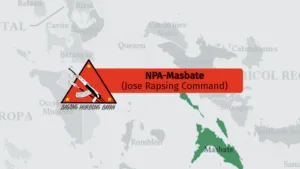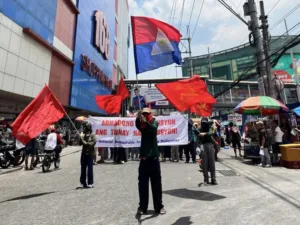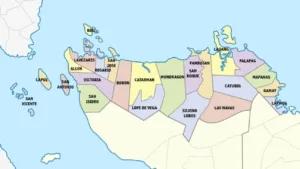By FIDEL V. AGCAOILI
Co-Chair, GRP-NDFP Joint Monitoring Committee
Member, NDFP Negotiating Panel
Lieutenant Colonel Franklin del Prado, spokesperson of the Philippine Army's 6th Infantry Division, exposes his profound ignorance when he claims that the New People’s Army’s use of a land mine in an ambush on an AFP platoon in Sultan Kudarat is a violation of international humanitarian law.
For the education of Lt. Col. Del Prado, the use of command-detonated land mines directed at military targets is not a violation of international humanitarian law. International humanitarian law is meant to protect civilians and non-combatants from the effects of war. But the use of command-detonated land mines directed at legitimate military targets—such as the platoon that del Prado himself admits was in the process of attacking an NPA position—is certainly a legitimate act of warfare.
For the further education of Lt. Col. Del Prado, the ban on the use of anti-personnel mines is not contained in the Geneva Conventions but in what is known as the Ottawa Treaty because this treaty was signed in Ottawa, Canada.
The treaty which runs under the title “Convention on the Prohibition of the Use, Stockpiling, Production and Transfer of Anti-personnel Mines and on their Destruction” defines the banned anti-personnel mines as follows: “’Anti-personnel mine’ means a mine designed to be exploded by the presence, proximity or contact of a person and that will incapacitate, injure or kill one or more persons.”
Only land mines that explode from an unintentional act — that is, by mere presence, proximity or contact of a person — are banned under the treaty because civilians can be victimized. Manually-detonated mines intentionally directed against military targets are not banned under the treaty.
The AFP should educate its officers so that their ignorance is not bared for the whole world to see.













